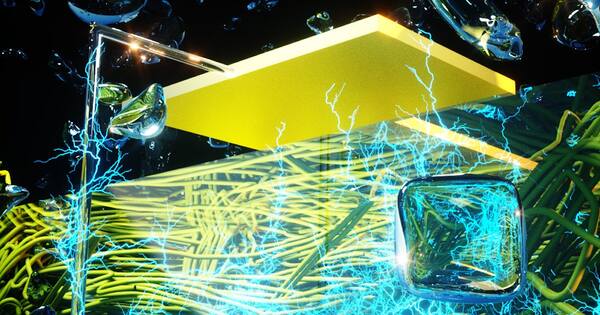tl;dr (copied from the abstract): “Here, a generic effect for continuous energy harvesting from air humidity is reported, […]. The common feature of these materials is that they are engineered with appropriate nanopores to allow air water to pass through and undergo dynamic adsorption–desorption exchange at the porous interface, resulting in surface charging.” “The work opens a wide door for the broad exploration of sustainable electricity from air.”
*Link to study (also in article): https://onlinelibrary.wiley.com/doi/10.1002/adma.202300748 *
*DOI URL: https://doi.org/10.1002/adma.202300748 *
They call the effect an ‘air-gen effect’ so more articles can be seen here: https://duckduckgo.com/?t=lm&q=Air-gen+effect&ia=news
Well… the question should be: where does all this electric charge come from? I you harvest it from humidity in the Air, the charge would removed. Thus, you have to replace the humidity in the air with fresh, „charged“ humidity.
Is there any natural effect, that this works automatically? Or do you need a fan? How much energy would that need?
Too much questions, too less details for a too simple solution.
I guess the same thing that puts the energy imbalance required for lightning to happen, is being used here.
I also think based on the small scale this study was done, there would be a very small amount of electricity generated - enough to maybe power a sensor. Otherwise there would be lightning. We already have ‘energy harvesting’ buttons and sensors which generate electricity from what would otherwise be wasted (I have a battery free doorbell which gets enough electricity to transmit a radio signal - from the act of pressing the button). This might start out as another way to get electricity to these kinds of devices.



